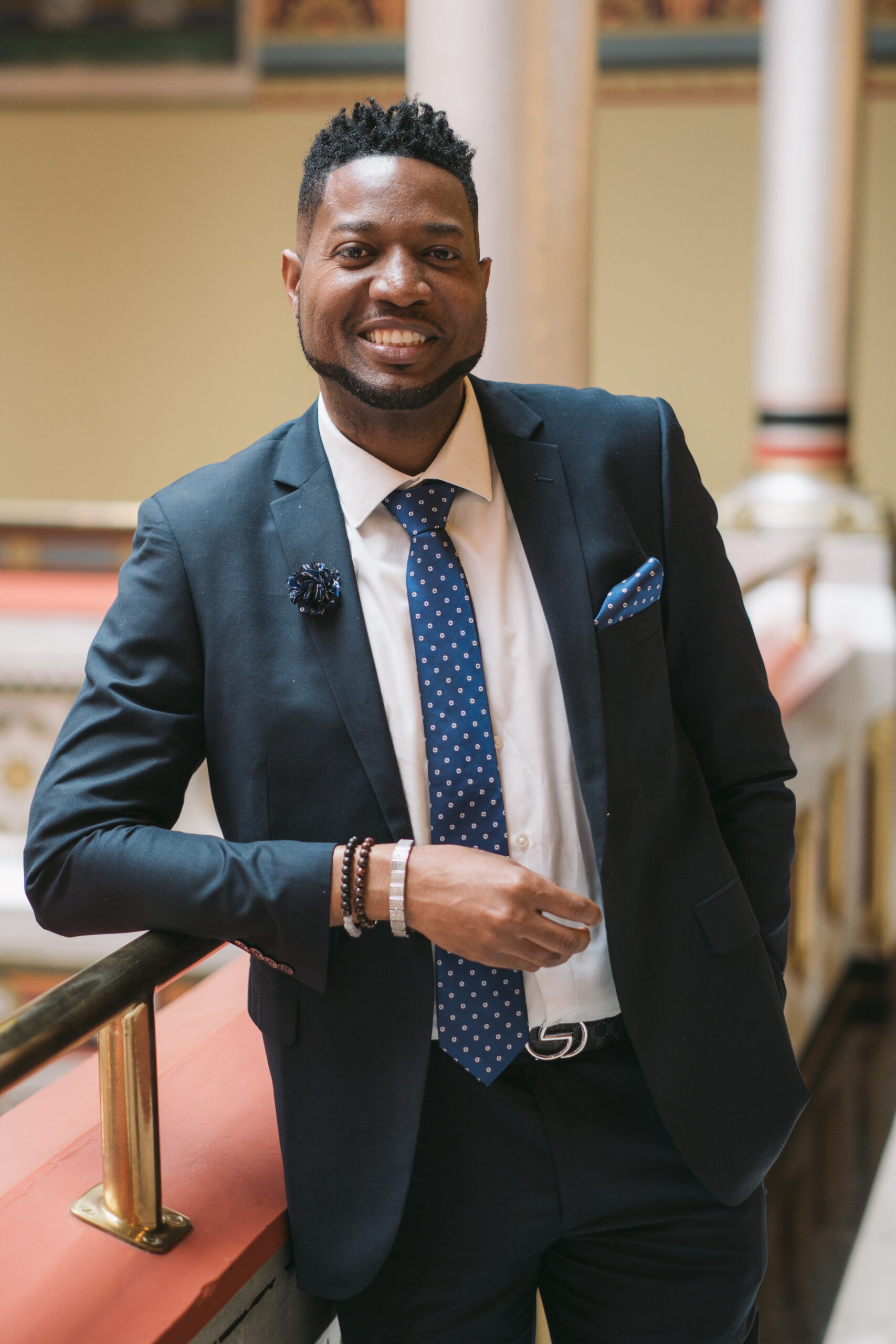Senator Gaston, Stratford Delegation Celebrates $2 Million Being Allocated to Project in Stratford
Today, state Senator Herron Keyon Gaston (D-Bridgeport) and the Stratford Delegation is celebrating funds being released to Stratford during the Community Investment Fund meet. African American Collections, Inc applied for Community Investment Funds (CIF) that will help rehabilitate 2225 Main Street in Stratford.
The CIF is awarding $2,000,000 to help with the Rehabilitation of the Sterling Homestead for relocation of the Ruby & Calvin Fletcher African American History Museum. The Museum has outgrown its temporary East Broadway location and was invited by Stratford to relocate to their newly acquired 10,000-sq.-ft. Sterling Homestead on Main Street. The building rehab project includes a new HVAC system, roof, plumbing, electrical, kitchen/warming center for events, fire/burglar alarm systems, restoring rotting and missing clapboard siding, and trim, repurposing exterior and interior walls and ceilings with painting, accessible bathrooms, exterior wall and attic insulation, ADA ramps, additional parking spaces, and an elevator.
“This museum is more then just a collection of artifacts, it provides a rich history and is a testament to the resilience, achievements, and contributions of African Americans,” said Sen. Gaston. “This museum serves as a space to offer reflection, education and pride. I am deeply proud this funding will work to support the continued rehabilitation of relocating the Ruby & Calvin Fletcher African American History Museum.”
“Working on this project with Jeffrey Fletcher over the past few years has been a pleasure,” Rep. Joseph Gresko said. “Moving the Fletcher African American Museum to the heart of Stratford’s historic district is a great success. Everyone who worked on this project should be proud.”
“It is incredibly important that this funding injection benefit the Ruby & Calvin Fletcher African American History Museum,” said Rep. Ben McGorty. “This space does an excellent job at illustrating a notable and troubling part of our nation’s history. This state grant will be integral in maintaining the Museum’s commitment to educating further generations.”
“Securing a sustainable future must begin with preserving and protecting our history,” Representative Laura Dancho (R-120) said. “I am grateful to see a significant investment in two Stratford landmarks that tell important stories about local culture. With this expected funding, both the Sterling Homestead and the Ruby & Calvin Fletcher African American History Museum can continue to educate and remind us about the role our community has played in Connecticut’s development.”
“It’s wonderful news,” said Senator Kevin Kelly (R-Stratford). “The Ruby and Calvin Fletcher African American History Museum is the first museum of its kind in New England. It is a chronological and educational journey that starts at the continent of Africa and takes small steps through various points in African American History. Stratford is very blessed to have this impactful and provocative museum right here in our town which shares both difficult and empowering pieces of our nation’s history. I thank the entire Stratford delegation for working as a team in advocating consistently for this worthy project, and I thank the governor for recognizing the long-term value of this significant state investment.”
The Ruby & Fletcher African American Museum, which is the first African American history museum in the state, was being moved into the childhood home of John William Sterling, the namesake of Yale’s Sterling Memorial Library. The Museum displays a wide collection of artifacts dating from the Atlantic slave trade to the Jim Crow South. The organization serves individuals, including students and teachers, affording them an opportunity to learn about African American culture by seeing historic artifacts up close and personal.
The Community Investment Fund 2030 (CIF) was created by a bipartisan vote of the General Assembly in 2021 and is funded through state bonding.
The CIF fosters economic development in historically underserved communities across the state. CIF will provide a total of up to $875 million to eligible municipalities as well as not-for-profit organizations and community development corporations that operate within them.
Grants are available for:
Capital improvement programs, such as brownfield remediation, affordable housing, infrastructure, clean energy development, and home or public facility rehabilitation
Small business capital programs, including revolving or micro loan programs, gap financing, and start-up funds to establish small businesses
Planning for capital projects including activities such as community engagement processes, feasibility studies, development of project plan and construction budget

